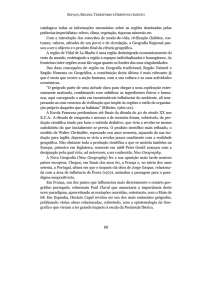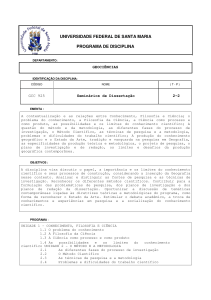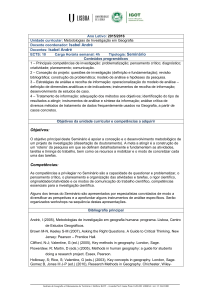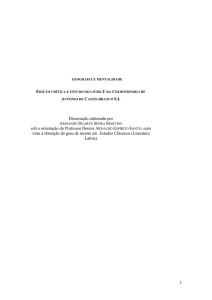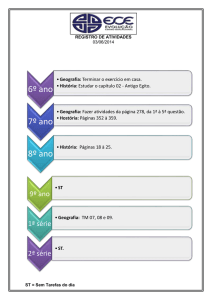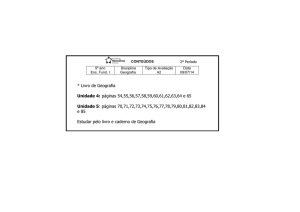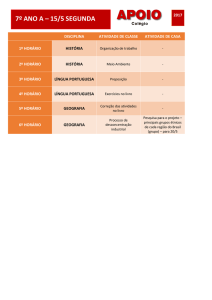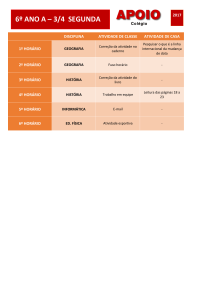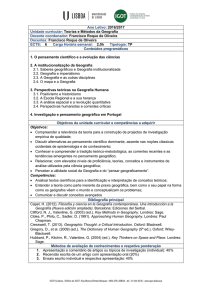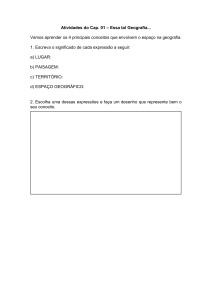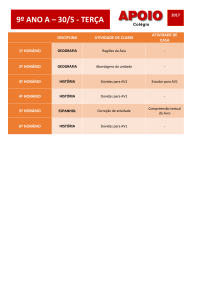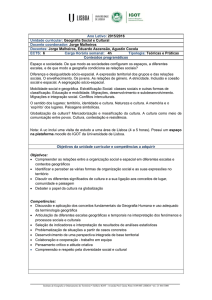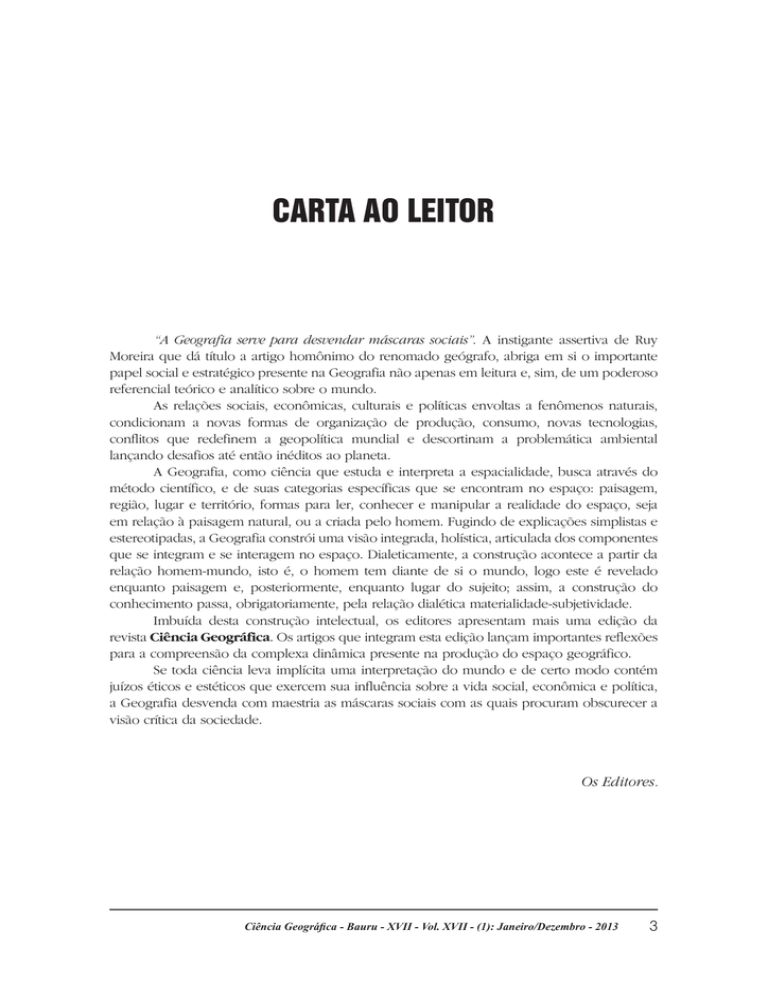
CARTA AO LEITOR
“A Geografia serve para desvendar máscaras sociais”. A instigante assertiva de Ruy
Moreira que dá título a artigo homônimo do renomado geógrafo, abriga em si o importante
papel social e estratégico presente na Geografia não apenas em leitura e, sim, de um poderoso
referencial teórico e analítico sobre o mundo.
As relações sociais, econômicas, culturais e políticas envoltas a fenômenos naturais,
condicionam a novas formas de organização de produção, consumo, novas tecnologias,
conflitos que redefinem a geopolítica mundial e descortinam a problemática ambiental
lançando desafios até então inéditos ao planeta.
A Geografia, como ciência que estuda e interpreta a espacialidade, busca através do
método científico, e de suas categorias específicas que se encontram no espaço: paisagem,
região, lugar e território, formas para ler, conhecer e manipular a realidade do espaço, seja
em relação à paisagem natural, ou a criada pelo homem. Fugindo de explicações simplistas e
estereotipadas, a Geografia constrói uma visão integrada, holística, articulada dos componentes
que se integram e se interagem no espaço. Dialeticamente, a construção acontece a partir da
relação homem-mundo, isto é, o homem tem diante de si o mundo, logo este é revelado
enquanto paisagem e, posteriormente, enquanto lugar do sujeito; assim, a construção do
conhecimento passa, obrigatoriamente, pela relação dialética materialidade-subjetividade.
Imbuída desta construção intelectual, os editores apresentam mais uma edição da
revista Ciência Geográfica. Os artigos que integram esta edição lançam importantes reflexões
para a compreensão da complexa dinâmica presente na produção do espaço geográfico.
Se toda ciência leva implícita uma interpretação do mundo e de certo modo contém
juízos éticos e estéticos que exercem sua influência sobre a vida social, econômica e política,
a Geografia desvenda com maestria as máscaras sociais com as quais procuram obscurecer a
visão crítica da sociedade.
Os Editores.
Ciência Geográfica - Bauru - XVII - Vol. XVII - (1): Janeiro/Dezembro - 2013
3
LETTER TO THE READER
“Geography serves to unravel social masks”. The provocative assertion of Ruy
Moreira in the title of namesake article of the renowned geographer, harbors within itself
the important social and strategic role in this geography not only in reading and , yes , a
powerful theoretical and analytical framework about the world.
Social, economic, cultural and political relations shrouded by natural phenomena,
condition the new forms of organization of production, consumption, new technologies,
conflicts that redefines global geopolitical and environmental issues unveil throwing
challenges to the planet hitherto unpublished .
Geography as a science that studies and interprets the spatiality, search through the
scientific method, and its specific categories that are in space: landscape, region, place and
territory, ways to read, understand and manipulate the reality of space, in relation to the
natural landscape, or created by man. Fleeing simplistic and stereotypical explanations,
Geography builds an integrated, holistic view of articulated components that integrate and
interact in space. Dialectically, construction occurs from the man–world relationship, that
is, the man has before him the world as soon as this is revealed as landscape and then
place of the subject, so the construction of knowledge passes obligatorily the dialectical
materiality–subjectivity relationship.
Imbued with this intellectual construction, the editors present another edition of
Geographic Science magazine. The articles in this edition cast important reflections for
understanding the complex dynamics present in the production of geographic space.
If all science takes an implicit interpretation of the world and somehow contains
ethical and aesthetic judgments that exert their influence on social, economic and political
life, geography masterfully unravels the social masks with which they seek to obscure the
critical view of society.
Editors
4
Ciência Geográfica - Bauru - XVII - Vol. XVII - (1): Janeiro/Dezembro - 2013

